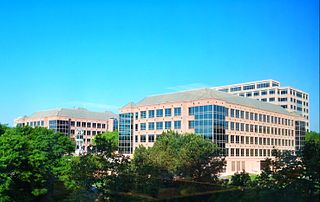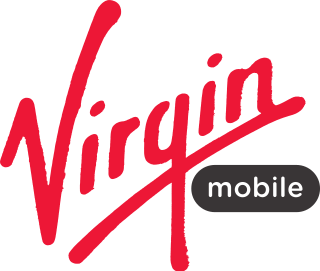A personal communications service (PCS) is set of communications capabilities that provide a combination of terminal mobility, personal mobility, and service profile management. This class of services comprises several types of wireless voice or wireless data communications systems, typically incorporating digital technology, providing services similar to advanced cellular mobile or paging services. In addition, PCS can also be used to provide other wireless communications services, including services that allow people to place and receive communications while away from their home or office, as well as wireless communications to homes, office buildings and other fixed locations. Described in more commercial terms, PCS is a generation of wireless cellular-phone technology, that combines a range of features and services surpassing those available in analogue- and first-generation (2G) digital-cellular phone systems, providing a user with an all-in-one wireless phone, paging, messaging, and data service.

T-Mobile is the brand name used by some of the mobile communications subsidiaries of the German telecommunications company Deutsche Telekom AG in the Czech Republic, Poland and the United States.

AT&T Mobility, LLC, also known as AT&T Wireless and marketed as simply AT&T, is an American telecommunications company. It is a wholly owned subsidiary of AT&T Inc. and provides wireless services in the United States. AT&T Mobility is the third largest wireless carrier in the United States, with 116 million subscribers as of September 30, 2024.
Verizon is an American wireless network operator that previously operated as a separate division of Verizon Communications under the name Verizon Wireless. In a 2019 reorganization, Verizon moved the wireless products and services into the divisions Verizon Consumer and Verizon Business, and stopped using the Verizon Wireless name. Verizon has 144.7 million subscribers as of September 30, 2024. It currently has the largest network in the United States with their LTE network covering 70% of the United States.
Rogers Wireless Inc. is a Canadian mobile network operator headquartered in Toronto, providing service nationally throughout Canada. It is a wholly owned subsidiary of Rogers Communications. The company had revenues of just under $15.1 billion in 2018. Rogers Wireless is the largest wireless carrier in Canada, with 13.7 million subscribers as of Q2 2023.

Virgin Mobile USA was a no-contract Mobile Virtual Network Operator. It used Sprint's network for coverage. It licensed the Virgin Mobile brand from United Kingdom-based Virgin Group. Virgin Mobile USA was headquartered in Kansas City, Missouri, and provided service to approximately 6 million customers.

Alltel was a landline, wireless and general telecommunications services provider, primarily based in the United States. Before its wireless division was acquired by Verizon Wireless and AT&T, Alltel provided cellular service to 34 states and had approximately 13 million subscribers. As a regulatory condition of the acquisition by Verizon, a small portion of Alltel was spun off and continued to operate under the same name in six states, mostly in rural areas. Following the merger, Alltel remained the ninth largest wireless telecommunications company in the United States, with approximately 800,000 customers. On January 22, 2013, AT&T announced they were acquiring what remained of Alltel from Atlantic Tele-Network for $780 million in cash.

Sprint Corporation was an American telecommunications company. Before being acquired by T-Mobile US on April 1, 2020, it was the fourth-largest mobile network operator in the United States, serving 54.3 million customers as of June 30, 2019. The company also offered wireless voice, messaging, and broadband services through its various subsidiaries under the Boost Mobile and Open Mobile brands and wholesale access to its wireless networks to mobile virtual network operators.

Northcoast PCS was an Independence, Ohio-based prepaid mobile phone operator owned by Cleveland Unlimited, LLC. It offered no-contract unlimited local calling for a fixed monthly price similar to Cricket Communications in Cleveland. It offered unlimited roaming in Dayton and Toledo for an additional monthly fee by a reciprocal roaming agreement with Cricket Communications signed in December 2004.

Metro by T-Mobile, formerly known as MetroPCS, and simply known as Metro, is an American prepaid wireless service provider and brand owned by T-Mobile US. It previously operated the fifth largest mobile telecommunications network in the United States using code-division multiple access (CDMA). In 2013, the carrier engaged in a reverse merger with T-Mobile US; post-merger, its services were merged under T-Mobile's UMTS and LTE network. Metro by T-Mobile competes primarily against AT&T's Cricket Wireless, EchoStar's Boost Mobile and Verizon's Visible as part of the wireless service provider brands. Metro by T-Mobile has twenty million subscribers as of 2021.

Cricket Wireless LLC is an American prepaid wireless service provider, wholly-owned by AT&T. It provides wireless services to thirteen million subscribers in the United States as of 2022. Cricket Wireless was founded in March 1999 by Leap Wireless International. AT&T acquired Leap Wireless International in March 2014, and later merged Cricket Wireless operations with Aio Wireless. Cricket Wireless competes primarily against T-Mobile's Metro by T-Mobile, EchoStar's Boost Mobile and Verizon's Visible in the prepaid wireless segment.

Embarq Corporation was the largest independent local exchange carrier in the United States, serving customers in 18 states and providing local, long-distance, high-speed data and wireless services to residential and business customers. It had been formerly the local telephone division (LTD) of Sprint Nextel until 2006, when it was spun off as an independent company. Embarq produced more than $6 billion in revenues annually, and had approximately 18,000 employees. It was based in Overland Park, Kansas.

Pocket Communications was a PCS CDMA 1xRTT provider of unlimited cellular phone service based in San Antonio, Texas, United States. It offered service plans similar to those of Cricket Communications and MetroPCS with unlimited local phone and messaging service on a month to month basis with no contract. Its founder Paul Posner started as a local paging operator in San Antonio before becoming a dealer for Southwestern Bell Mobile Systems, Houston Cellular, and BellSouth Mobility in 7 markets in Texas and the Southeast under the name Discount Cellular & Paging. After selling these operations in 1997, Posner spent 7 years trying to acquire FCC licenses required to build a cellular network and was ultimately successful in FCC Auction 58 in 2004. Pocket launched service in 2006 in San Antonio and competed directly with Cricket Communications in the only US market where two flat-rate providers competed head to head. Pocket's unique marketing strategy included operating hundreds of small retail locations with just one employee, oversaturation of billboard advertising, and the use of chimpanzees in its advertising. In its first year of operations, Pocket became the fastest growth company in the history of the US wireless communications, achieving positive cash flow in just 6 months. Subsequent expansion from San Antonio to Laredo, the Rio Grande Valley, and Corpus Christi markets and a customer base of over 400,000 subscribers ultimately led to a merger offer from Cricket Communications in late 2010. Cricket was subsequently sold to ATT in 2015. ATT continues to operate Cricket as a stand-alone business and a "flanker brand.

Nextel Communications, Inc. was an American wireless service operator that merged with and ceased to exist as a subsidiary of Sprint Corporation, which would later be bought by T-Mobile US and folded into that company. Nextel in Brazil, and formerly in Argentina, Chile, Peru, the Philippines, and Mexico, is part of NII Holdings, a stand-alone, publicly traded company not owned by Sprint Corporation.

T-Mobile US, Inc. is an American wireless network operator headquartered in Bellevue, Washington. Its largest shareholder is Deutsche Telekom, a company that operates telecommunications networks in several other countries. T-Mobile is the second largest wireless carrier in the United States, with 127.5 million subscribers as of September 30, 2024.
Clearnet was a division of Telus Mobility launched in April 2011 to sell landline and mobile phone bundles in Western Canada. It was a revival of the Clearnet Communications brand name, which originally belonged to an independent cellular provider that was merged into Telus Mobility in 2000. Telus relaunched Clearnet as a discount provider with a "limited market trial" in Kelowna, British Columbia and Red Deer, Alberta.

Aio Wireless was a prepaid wireless service provider in the United States, wholly owned by AT&T Inc., launched in May 2013.

mobi, Inc. is a wireless carrier founded in 2004 and based in Honolulu, Hawaiʻi. The company provides service on each of the major islands of Hawaiʻi, as well as on the mainland United States through roaming agreements with other carriers.

DISH Wireless L.L.C., doing business as Boost Mobile, is an American telecommunications company and wholly owned subsidiary of EchoStar Corporation. Boost Mobile is the fourth largest wireless carrier in the United States. Together with its sister brands Gen Mobile and Ting Mobile, it serves 7 million subscribers as of September 30, 2024.















